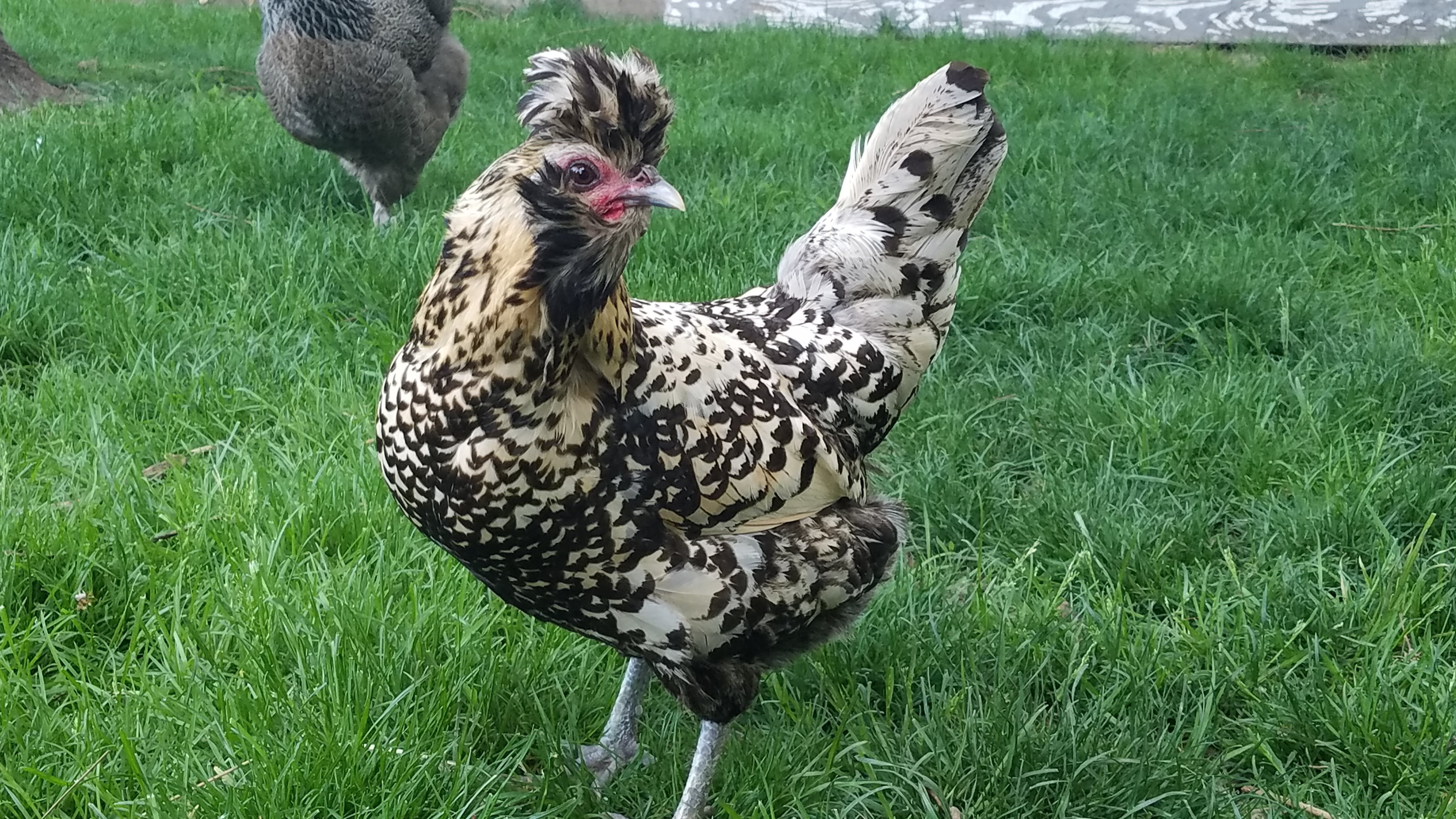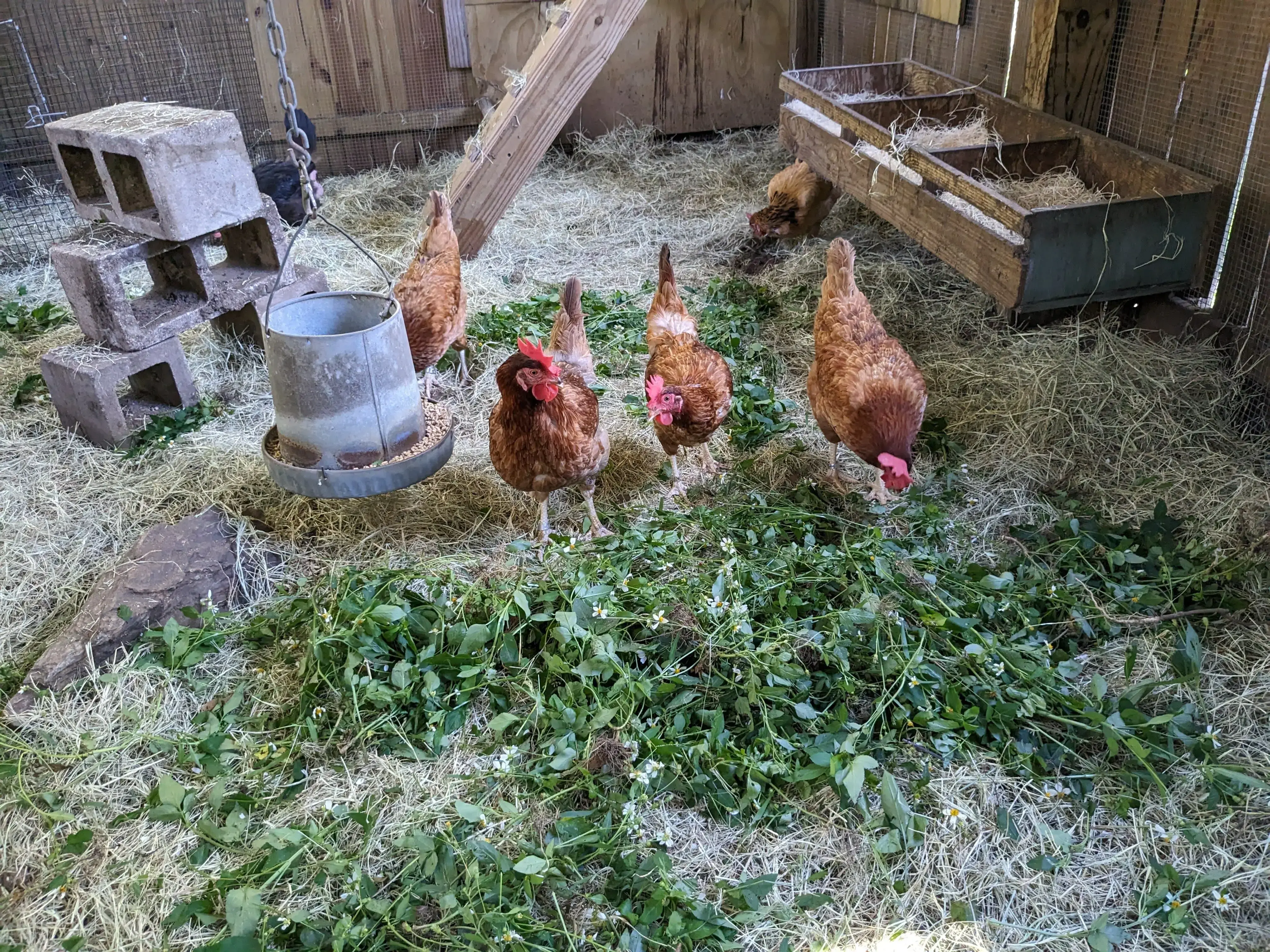Attempted Cross post
I’m no professional but our Rhode Island Reds use to crazy for a little spaghetti once and a while but I’ll post some more realistic quality of life improvements that can lead to happy birds.
-Sunlight: it keeps the birds happy and happy birds lay more eggs
-Roost(s): I’ve had birds that preferred sleeping in nesting boxes (Silkies) and Leghorns that prefer roosting at night. Having a large roost or one that staggers is a nice sleeping area.
-Replacing the hay for the nesting boxes a little more frequently when cleaning the coop.
-Kitchen Scraps: I’m serious about the pasta if you have some kitchen leftovers and take care of what scraps to feed they will be ecstatic
-Heat lamp: It depends on the bird but if it gets below 40F a small heat lamp can do wonders for nighttime
I like the cement blocks, we use to put some smaller perches around outside and sometimes they’d get adventurous and try to walk them.
-Roost(s): I’ve had birds that preferred sleeping in nesting boxes (Silkies) and Leghorns that prefer roosting at night. Having a large roost or one that staggers is a nice sleeping area.
Silkies will do this because they cannot fly worth a damn. Be careful, I’ve had silkies go broody without any eggs simply because there was a nest box. They are baby crazy hens. You should never let your birds sleep in the nest boxes as they will foul the bedding quickly. I’ve had to add a curtain to mine to keep young pullets from avoiding the roosts and roosting in the nest boxes.
-Heat lamp: It depends on the bird but if it gets below 40F a small heat lamp can do wonders for nighttime
#1 way to burn down your coop and kill your birds. Chickens regulate their body temperature with feed, so just make sure they have plenty of feed and your birds will do just fine without a heat lamp. They just need to be out of the wind. While we don’t get a lot of sub-freezing temps here in Central Texas, my girls made it through several cold snaps last winter that drove temps to or just below freezing overnight without heat lamps no problem.
Are they really featherless or are they going through a molt? Chickens molt regularly and can look pretty rough sometimes. Are they a daily laying breed? Those breeds can require a higher protein intake. I feed my flock Nutrena All Flock, which is 20%, partly because my initial girls were ISA Browns, which are notorious for having feather issues due to being daily layers, as well as I also have quail and turkeys. So far this year’s molt has been pretty mild.
If they’re laying, make sure they have a calcium supplement. If they aren’t providing it, they should be. Their feed might have enough calcium, but it is better to be safe than sorry.
You may want to opt for the deep bedding method over weekly bedding changes. Those who do it swear by it.
If coop #1 has a fenced in area, is there any chance of being able to install a timed or light sensor activated door? Of course putting one in would mean making sure the birds all get inside on time. That would mean coming by after it is dark to check. After a couple times they’d get the idea.
Get a flock block for entertainment and treats at the same time. There are also devices that dispense treats if the birds play with it the right way. Make or buy chicken swings.
If they can’t regularly get at dirt to swallow small rocks and pebbles for digestion, you will also need to get the department to provide grit. If they’re only on crumbles or pellets, they don’t necessarily need it, but if you’re feeding them other things that are not water soluble, like greens and mealworms, they really should have grit in their diet. They need that in their gizzard so that they can grind those kinds of foods up to get the most nutrition out of them.
Once they’re on grit, I’d suggest bringing some scratch or cracked corn for them, too. A couple handfuls or so. Depends on how many birds there are.
You can leash train them, but I’d suggest befriending them first. This is going to require getting them comfortable enough to sit in your lap without you putting them there(unless they demand that you pick them up, which is okay, some girls are just lazy little divas).
https://www.merckvetmanual.com/, https://www.purinamills.com/Education/chicken-feed, and https://backyardchickens.com are invaluable resources to have for learning and knowledge, as well as emergency information. For more general info, there are plenty of chicken people on YouTube and social media. One of my personal faves is Nikki Husted, https://purelychickens.com/. I don’t agree 100% with everything she says, but I’d say 95% or more of what she shares on social media is spot on and nothing I disagree with her about would hurt chickens and is usually just a matter of preference. Also look for people who take a science based approach to chickens. There are a lot of people out there who will try to push unproven theories or old wives’s tails as fact with no data to back them up.


